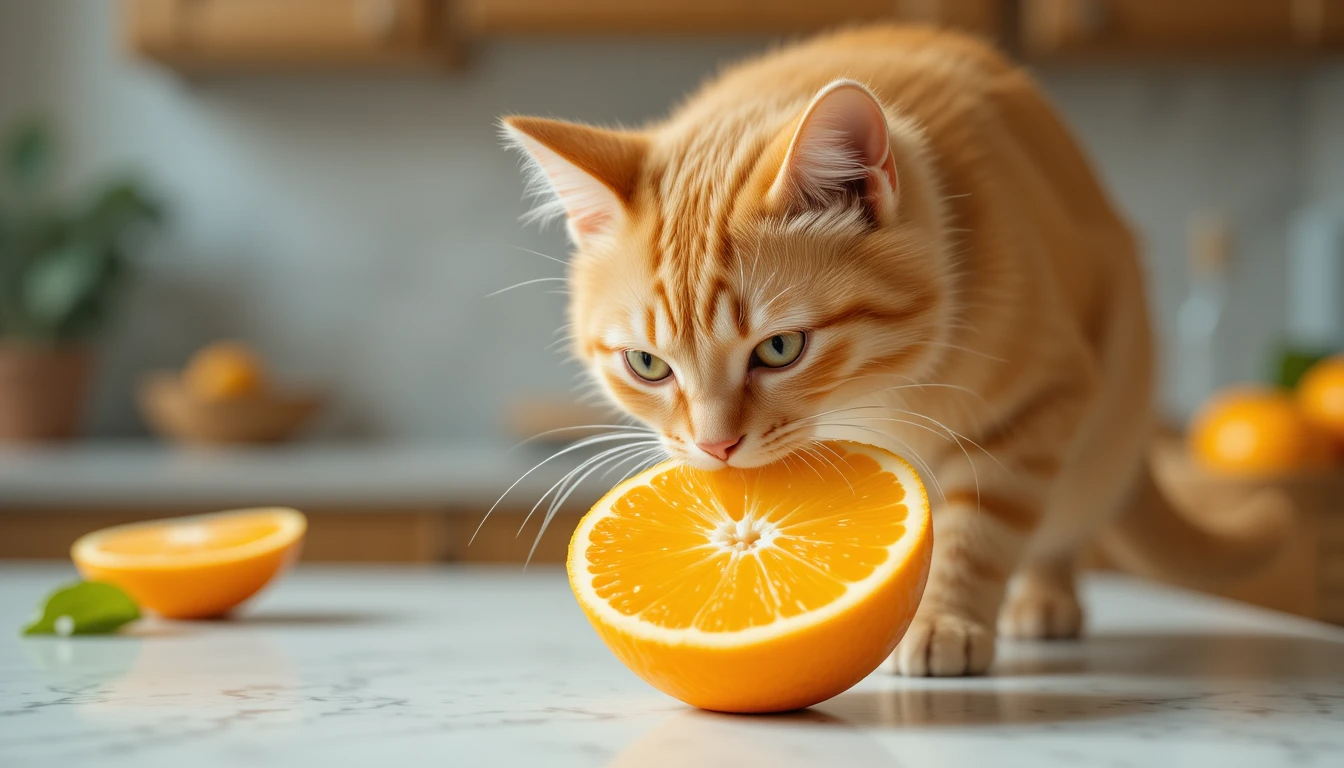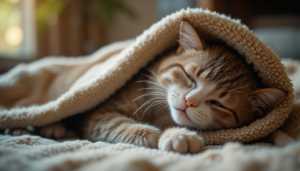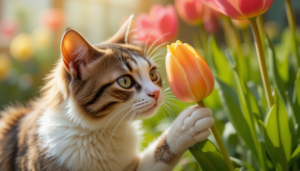Can Cats Eat Oranges? What Vets Say
If you’ve ever peeled an orange near your cat, you’ve probably noticed their immediate disgust. Most cats hate the smell of citrus, making it unlikely they’ll ever take a bite. But as a responsible pet owner, it’s important to know whether oranges are safe—just in case your curious feline decides to sneak a taste.
So, can cats eat oranges? The short answer is no. Oranges, including navel, mandarin, and cara cara varieties, contain compounds that can harm cats. Let’s dive into the risks, symptoms of toxicity, and safer alternatives.
Why Are Oranges Bad for Cats?
Oranges (and other citrus fruits) contain several harmful substances for cats, including:
- Essential oils (limonene & linalool): Found mostly in the peel, these can cause digestive upset and nervous system depression.
- Psoralens: Present in the peel, seeds, and flesh, these make cats more sensitive to sunlight, leading to skin irritation.
- Citric acid: Can irritate a cat’s stomach, leading to vomiting or diarrhea.
Dr. Eliza O’Callaghan, a veterinarian at Small Door Vet, notes that the peel and seeds have the highest concentration of these toxins, making them especially dangerous.
Do Cats Even Like Oranges?
Fortunately, most cats avoid oranges due to their strong citrus scent. This natural aversion means serious poisoning cases are rare. However, accidental ingestion can still happen—especially if orange is an ingredient in human food.
Nutritional Value of Oranges (And Why Cats Don’t Need Them)
Oranges are packed with vitamin C, fiber, and potassium—great for humans but unnecessary for cats. Here’s why:
- Cats produce their own vitamin C, so they don’t need dietary sources. Excess vitamin C can even lead to urinary issues.
- Fiber from fruits isn’t beneficial—cats’ digestive systems are designed for meat, not plant matter.
- Natural sugars can cause blood sugar spikes, which is risky for diabetic or overweight cats.
Since cats are obligate carnivores, their diet should consist mainly of animal-based proteins—not fruits.
Symptoms of Orange Toxicity in Cats
If your cat eats an orange (especially the peel or seeds), watch for:
- Drooling
- Vomiting
- Diarrhea
- Lethargy
- Skin irritation (if exposed to sunlight)
These symptoms are usually mild, but if they persist, contact your vet immediately. For emergencies, call:
- Pet Poison Helpline: (855) 764-7661
- ASPCA Animal Poison Control: (888) 426-4435
Safe Fruit Alternatives for Cats
While oranges are off-limits, some fruits are safe in small amounts (less than 10% of their diet). Always remove seeds, pits, and peels first.
Cat-Friendly Fruits:
✅ Strawberries
✅ Blueberries
✅ Watermelon (seedless)
✅ Cantaloupe
✅ Bananas (in moderation)
✅ Apples (no seeds)
Final Verdict: Should Cats Eat Oranges?
No—oranges are toxic to cats due to their essential oils, psoralens, and citric acid. While severe poisoning is rare, it’s best to keep oranges away from your feline. Instead, stick to vet-approved treats and a high-protein diet tailored for cats.
FAQs
1. Can cats eat orange peels or seeds?
No—these contain the highest toxin levels and should be avoided.
2. How much orange is dangerous for cats?
A small bite of flesh may not cause harm, but larger amounts (especially peel/seeds) can be toxic.
3. What if my cat eats an orange?
Monitor for symptoms and call your vet if any appear.
By understanding the risks, you can keep your cat safe while still enjoying your favorite citrus snack—without sharing! 🐱🍊




